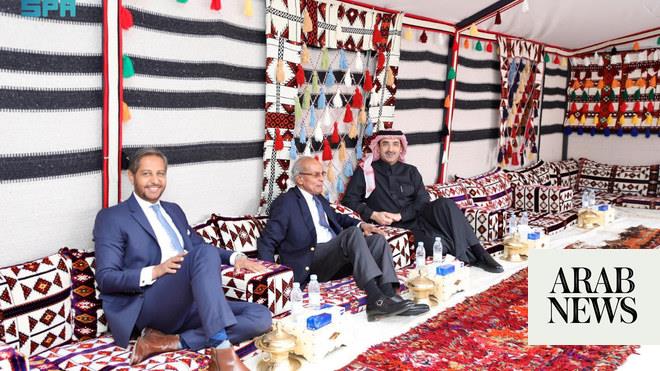
While many legal obstacles had been lifted, many of the challenges that remained were mostly at a social level
JEDDAH: Saudi women still face challenges in the workplace despite the government lifting legal barriers to advance their social and economic participation, according to leading figures in the Kingdom.
A virtual forum, organized by the King Abdul Aziz Center for National Dialogue and led by the writer and journalist Nahid Bashatah, was held to discuss the issues facing Saudi women as they seek to play a proactive part in the Kingdom’s sustainable development goals.
It addressed the roles that were expected of women in different specialties and sectors as well as the obstacles they faced, especially those facing women in leadership positions.
Participants said that, while many legal obstacles had been lifted by the Saudi government in recent years to advance women’s economic and developmental inclusion and engagement, many of the challenges that remained were mostly at a social level.
Hind Al-Zahid, who is undersecretary for women’s development at the Human Resources Ministry, said that there were still some covert discrimination practices based on personal judgment, despite labor legislation not discriminating between women and men.
“For instance, some employers take advantage of some regulations that stipulate women should not be employed in hard labor jobs, so they take it as a way out not to employ any woman based on their own judgment on the nature of work.”
Al-Zahid added that the number of women in leading positions in the public sector did not exceed 2 percent, undermining initiatives that emphasized the need to empower women in leadership and decision-making positions.
Dr. Albandari Al-Rabiah, who is the director of the Studies and Information Department at the Public Administration Institute, said that empowerment came by ensuring women were able to develop their full potential, and that women should be offered effective training that was tailored to their assigned roles.
“Everyone agrees that having a qualified workforce means the need for development, training and well-structured plans in order to provide women with the necessary knowledge and skills so they perform in accordance with what is expected from them,” she told fellow participants.
She said that, since the Vision 2030 reform plan aimed to raise women’s participation in the government sector to 30 percent, there were opportunities for women in the job market that did not exist before. Women needed proper training in order to achieve true empowerment, she added.
Financial adviser and member of the Al-Dakhil Financial Group Khulood Al-Dakhil said that while Saudi women were currently living in a “golden age,” social initiative was necessary to change the limited perceptions about what women could do in society and for their country. “This initiative must be aimed at different segments of society on different levels,” she added.
Shoura Council member Noura Al-Shaban said that women’s empowerment should not mean competition between the two genders and that there should, instead, be a sense of harmonization of roles in society.
She added that women held 30 seats in the Shoura Council, which was 20 percent of the body, and that they had the same responsibilities as their male colleagues.











